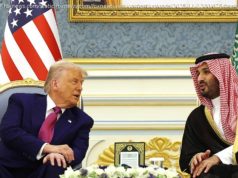A new report says China funneled billions in hidden loans to U.S. companies over the past quarter century, some targeting industries key to national security.
For years, Washington has been warning others not to trust loans from Chinese state banks fueling its rise as a superpower. But a new report reveals an ironic twist: The United States is the biggest recipient of all — by far. And the security and technology implications have yet to be fully understood.
China’s state lenders have funneled $200 billion into U.S. businesses for a quarter of a century, but many of the loans have been kept secret because the money was first routed through shell companies in the Cayman Islands, Bermuda, Delaware and elsewhere that helped obscure their origins, according to AidData, a research lab at the College of William & Mary in Virginia.
More alarming, much of the lending was to help Chinese companies buy stakes in U.S. businesses, many tied to critical technology and national security, including a robotics maker, a semiconductor company and a biotech firm.
The report found a far more widespread and sophisticated lending network than previously thought — a web of financial obligations extending beyond developing countries to rich ones, including the U.K., Germany, Australia, the Netherlands and other U.S. allies.
“China was playing chess while the rest of us were playing checkers,” said former White House investment adviser William Henagan, who worries the hidden lending has given China a chokehold on technologies. “Wars will be won or lost based on whether you can control products critical to running an economy.”China money gets a closer look
While the U.S. still welcomes most foreign investment — and President Donald Trump has courted it — money from China has drawn particular scrutiny as the world’s two biggest economies with opposing ideologies battle for global supremacy.
Deals financed by China’s state-owned banks, the ones studied in the AidData report, are especially problematic. The lenders are controlled by China’s central government and the Communist Party’s Central Financial Commission, and they are directed to advance China’s strategic goals.






